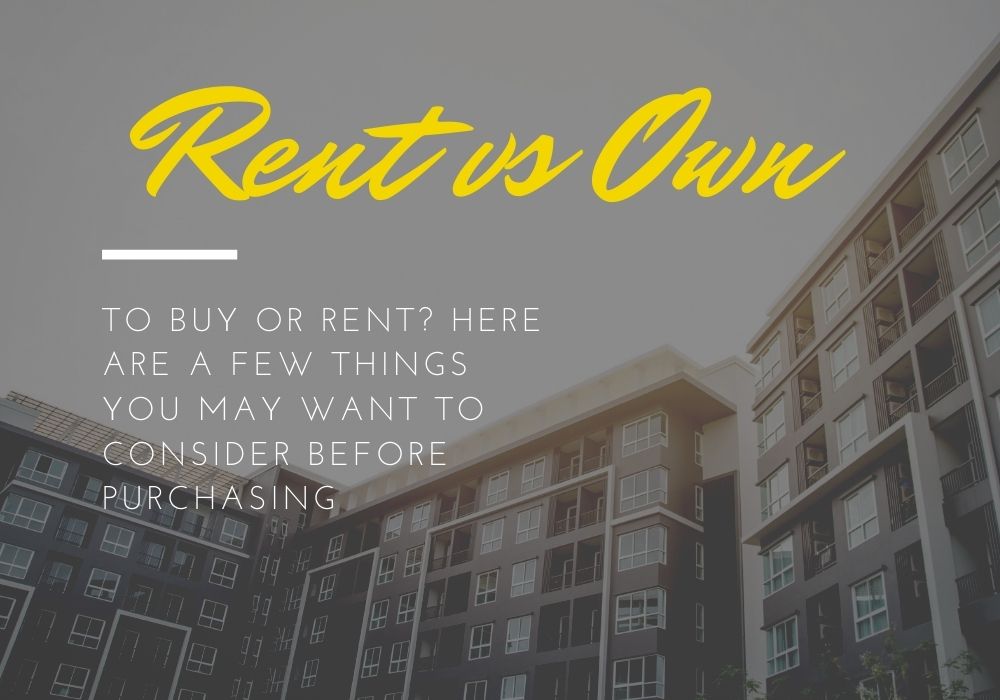Your colleagues, friends, and family may be enjoying the comfort of their homes, but you’re still living in a rental property. Such situations may compel someone to think about purchasing a property. It may be difficult to weigh the best option: to rent or buy.

Some may argue purchasing a home is the better option because the homeowner can build their equity in the long term and can reap the benefits. On the other hand, renting may be more affordable and the better option if you are not ready to settle down.
Here are a few things you may want to consider…
Can You Afford to Purchase a Home?
One of the first things you may want to consider is whether you can afford to finance a new home. Several expenses come with investing in residential property; for instance, you’ll have to cater to the mortgage deposit, survey costs, and stamp duty.
Here’s how the costs of property ownership can differ from those you incur when renting.
Purchasing a home:
The highest ongoing costs of owning a property are probably the monthly mortgage fees comprising of the loan principal and interest charges. The amount homeowners pay may vary from time to time if you have a flexible interest plan. Other charges you may incur in the process include inspection fees during the time of purchase and the hiring of sub-contractors to perform repairs. Generally, if your home is newer, you may expect to spend approximately 3% of the cost of your home per year for maintenance and maybe close to 5% if it is an older home.
Owning a home is often considered more expensive because of maintenance fees, taxes, and homeowners’ insurance; however, there are benefits in the long term. As time goes by, homeowners may be able to capitalize on their home equity. That may mean getting returns on your investment when you sell the home or maybe even utilizing a Reverse Mortgage when you are ready to retire.
Renting a Home:
For renters, they will most likely incur a security deposit the first time they occupy a rental unit. This amount cushions the landlord from incurring costs in case the renter damages the property. Most property managers require renters to pay the first and final month’s rent when signing a lease contract. A benefit of renting a home is not having to worry about maintenance issues; it would be the landlord’s responsibility to make sure everything in your home is in good condition.
Depending on where the renter lives, renting a housing unit may cost the same as purchasing a home. In that case, it would play to the renter’s advantage to speak with a Mortgage Professional to look into what type of budget you’d have and a Real Estate Professional to find a property in your price range.
Pro Tip: When renting, it is a good idea to inquire whether the monthly rent includes utilities, such as gas, water, and electricity, before signing the contract.
Conclusion: Choose What’s Right for You
There isn’t always a clear answer to the question of what’s smarter, renting or buying a home. Depending on your preferences, financial status, and current life situation, the answer might change over time. To make an informed decision that works and feels right for you, it may be helpful to talk to a trusted Real Estate or Mortgage Professional who can help you navigate your options and negotiate the best deal on the home that’s right for you.
